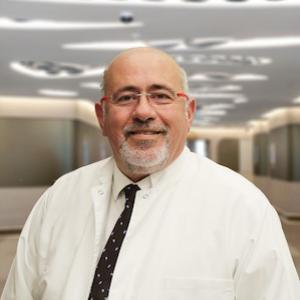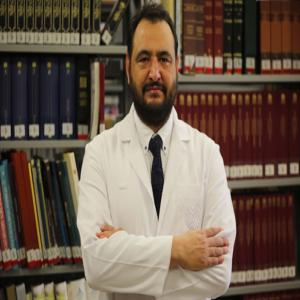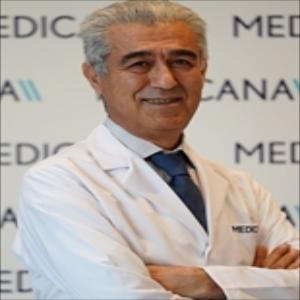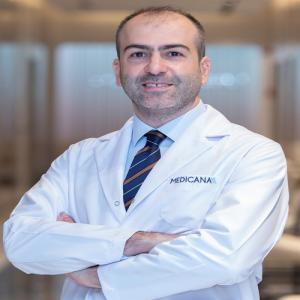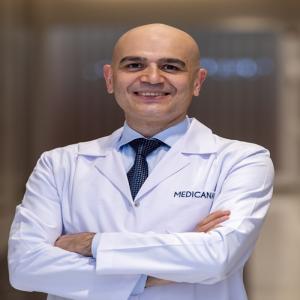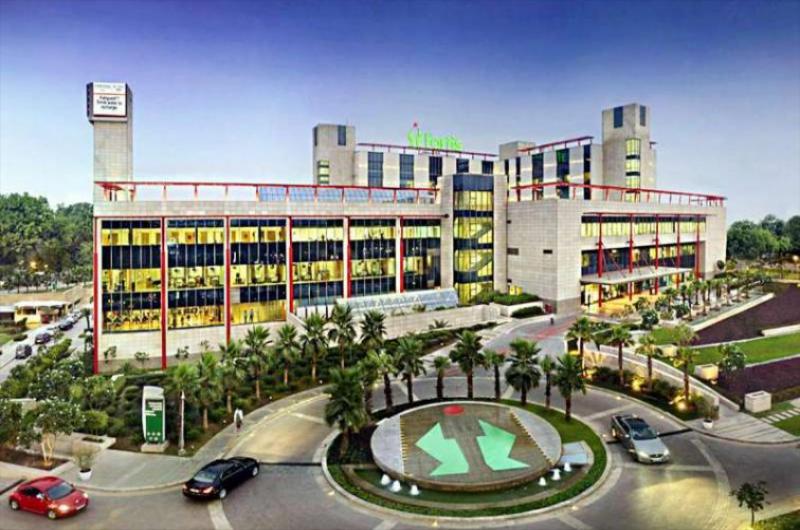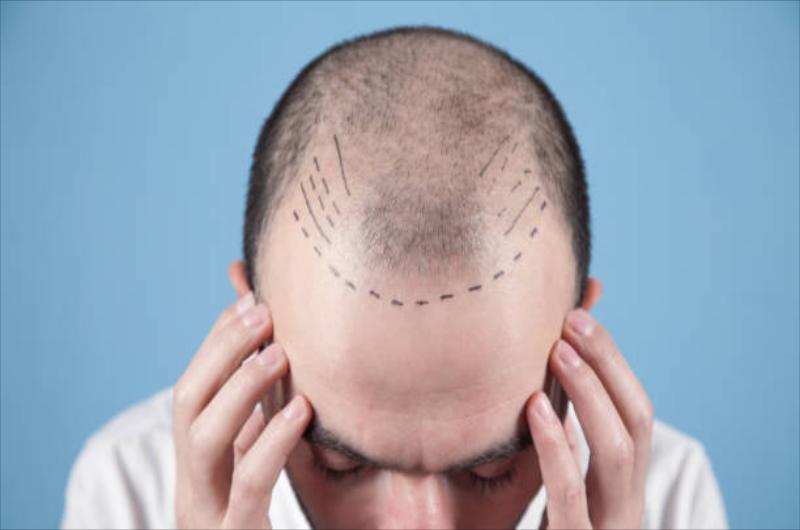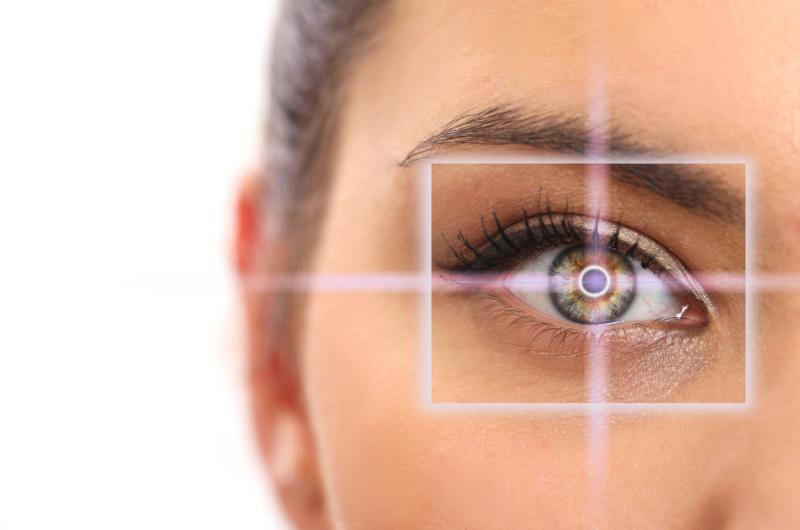Medicana Ataşehir Hospital
About Hospital
Medicana Ataşehir Hospital will be one of the most important medical centers not only in Turkey, but in all Europe with its modern technological infrastructure, planned to serve in all branches of medicine with senior hospital architecture.
Medicana Ataşehir Hospital, planned as one of the most comprehensive healthcare concepts in Istanbul, as a new understanding of healthcare services.
The hospital offers all medical branches, special treatments and surgical treatment possibilities combined with superior technology by combining it with a patient-oriented service approach.
Medicana Ataşehir Hospital is a hospital that combines interior spaces designed to offer high comfort for patients and their relatives, experienced, contemporary, expert staff following innovations, high technology and specialized treatments with modern technology. The "future" in health service delivery starts with Medicana Ataşehir Hospital.
In the design of Medicana Ataşehir Hospital, every detail was considered for the comfort of the patients, their relatives and employees. Every space, from the lobby area to the polyclinics, from patient waiting points to doctor and patient rooms, has been designed to meet all the needs of patients.
Every detail has been considered in order for patients and their relatives to spend their treatment and hospital stay in the most comfortable way. Everything, from the choice of colors to the forms of the items, from lighting to the selected accessories, has been planned to be a part of the healing.
As a modern hospital with high-tech imaging units, specialized laboratories, high-tech operating rooms and intensive care units, we are always at your side and support.
Urology is a medical science that studies male and female reproductive organs and urinary tract. It examines the diagnosis and treatment process of all diseases related to organs such as kidneys, bladder, ureters, urethra, penis, testicles, scrotum and prostate gland. Urology includes both the infection in the urinary tract and the surgical interventions of the urinary system. The name given to all diseases related to the reproductive system and urinary tract is known as "urogenital disorders." The urology system deals with the reproductive and excretory system, especially in men. In women, it mostly deals with excretory system diseases. Since the reproductive system and excretory systems in women should be examined as a whole, urology works together with the gynecologist. Urology is divided into sub-disciplines within itself. These are andrology, pediatric urology, female urology, neurourology, endourology and urooncology.
Andrology is one of the sub-branches of urology dealing with sexual dysfunctions. Male and female sexual health and male infertility are common and studied diseases. Basic researches such as all anatomical, physiological and biochemistry are carried out in such diseases. The most common complaints about this area are sexual anorexia in men and women, pain syndromes in the reproductive organs, disorders in the penile structure and male infertility. In diseases with hormonal problems, treatments are carried out together with endocrinology and psychiatry specialists. The solution against male infertility is treatment with IVF method.
Pediatric Urology: It is a sub-science developed for urology diseases in children. Such diseases seen in children can give symptoms quite late. However, thanks to the advanced technology developed in recent years, even the examinations of abnormalities for a baby are made in the ultrasound environment and the treatment process begins as soon as it is born. In addition to these, urology assistance is sought in cases such as urinary problems, gender ambiguity or swelling in the genitals that may be experienced in newborn babies or in advanced ages. In addition, disorders such as frequent urination, pain in the kidneys, erroneous circumcision, urinary incontinence during the day or night are also examined.
Female Urology: It is a sub-science that includes two branches, namely urogynecology. Disorders such as pelvic prolapse, urinary incontinence and overactive bladder are dealt with. 60% of women between the ages of 20 and 70 have these diseases. Since the reasons for the occurrence of diseases vary according to the individual, the decision to be made for treatment has a personalized medical or surgical feature.
Neurourology: It is a sub-science that examines the urinary discharge problems that occur with the disorders of the brain, spinal cord and peripheral nerves. Necessary treatments are performed for the diagnosis of diseases that occur as a result of complaints such as urinary problems experienced at night and frequent urination.
Endurology: It is the sub-science that deals with the diagnosis and treatment of stones in the urinary tract and kidneys. Treatments can be done in many ways according to the size and frequency of the stones.
Urooncology: It is a sub-science that deals with the diagnosis and treatment of urological organ cancers such as bladder, kidney, prostate or testis. If diagnosed early, very good responses to treatments are obtained. It is absolutely necessary to seek the help of a specialist urologist in all kinds of urinary disorders such as blood coming from the urine, swelling in the ovaries even if it is painless, and pain in the abdominal cavities.
Urological Tests and Surgical Interventions
In urological problems, the general health status of the patient is examined and some tests may be requested to examine the disease in more detail. Common tests are:
MRI scan or CT scan to pinpoint the exact location of the disease
Ultrasound (Doppler USG, transrectal USG, urinary USG),
Urine test against infection risks,
Cystogram of the bladder taken with the help of X-rays,
Use of a cystoscope necessary to visualize the urinary tract,
Urodynamic tests required for intrabladder pressure and volume measurement,
Voiding cystourettography (VSUG),
Biopsy against cancer risk,
Blood tests required to examine the urinary system,
Prostate specific antigen (PSA) test,
Semen analysis,
Urine flow test,
Rectal examination.
After the necessary tests are performed, surgical intervention may be required during the treatment process. Operational techniques generally used in patient treatments are as follows:
Classical operations (kidney, bladder, urinary tract, prostate, testicular diseases),
Percutaneous stone surgery (kidney stones)
Radical prostate surgeries,
Laparoscopic surgeries,
Endoscopic surgeries,
Microscopic surgeries (in infertility treatment),
Microvaricocelectomy.
Medicana Hospitals Group provides high quality standards in surgery and postoperative care processes with its doctors and medical staff specialized in the field of General Surgery. With its full-fledged hospital, operating room and medical care units located in different provinces, it successfully completes surgical processes in the healthiest way possible. Thanks to the staff of doctors specialized in different surgical subjects, maximum positive results are aimed in the treatment of all diseases in the field of General Surgery.
What is General Surgery?
General surgery is a discipline based on the principle of repairing diseases that cannot be treated with medication or other medical methods by surgery or healing by cutting the diseased organ. The General Surgery department, which has different fields of study, cooperates with units that have expertise in different subjects such as oncology, endocrinology, traumatology. General Surgery, which is one of the areas where new generation medical applications are used most frequently, is a treatment system where robotic technology is used extensively and successful results are obtained.
Which Diseases Does General Surgery Treat?
The organs to which the operations will be performed or the systems to which they are connected are also the determinants of which part of the General Surgery will be treated. Thyroid gland surgeries are performed to eliminate the diseases of the patients of the endocrinology department that require surgical treatment. General Surgery works with more than one different department. For the treatment of digestive system diseases, operations such as esophagus, small and large intestines, stomach, rectum, liver, gall bladder are performed by General Surgery. Operations are performed by open or closed methods. Endoscopic and laparoscopic systems, which are frequently used among closed surgery methods, contribute positively to the rapid progress of postoperative recovery. For this reason, closed surgery methods are more preferred by doctors and patients recently. Breast complaints are among the important health problems that women and in some cases also men suffer from. Surgical removal of benign or malignant formations in the breast is among the topics of General Surgery.
General Surgery also functions in terms of preventive medicine, especially in some cases that require follow-up processes such as breasts. It is essential to follow the patient with preventive medicine methods and to eliminate the problem without the need for surgery. A significant part of General Surgery patients are oncology patients. Tumor formations that can occur in different parts of the body are eliminated in cooperation with General Surgery and specialists in the field where the relevant organ is attached. The diagnosis and treatment methods of oncology patients are planned and applied simultaneously by General Surgery and the specialist doctors of the relevant department. Surgery and post-operative treatment methods continue to be carried out with different units such as Pathology, Radiology, Medical Oncology.
The sections of General Surgery are as follows according to the diseases to be treated:
Gastrointestinal System
Intra-Abdomen
Digestive system
Skin and Soft Tissue Surgeries
Breast Diseases
Endocrine System
Surgical Oncology
Surgical Intensive Care
Traumatology
Vascular Surgery
Transplantation Surgery
Cardiac Surgery
Pediatric Surgery
Pediatric Cardiovascular Surgery
Thoracic Surgery
Plastic surgery
Plastic and Reconstructive Surgery
Orthopedics and Traumatology
Obesity Surgery
The diseases that fall within the scope of the General Surgery unit can be listed as follows:
Thyroid diseases,
Appendicitis,
Pain, swelling, stiffness or pain in the breast
Pain or swelling in the abdominal area
Orthopedic problems (including gangrene)
Hemorrhoids (Piles)
Ingrown hair
Small and large intestine problems
Liver problems
Stomach
Skin problems (Meat me, sebaceous gland)
Seeing blood in large stools,
Abdominal pains
Recurrent diarrhea and constipation,
Pain under the right rib, feeling of pressure and pain extending to the right shoulder blade. Tension sensation in the right shoulder area,
Pain and swelling in and around the navel area,
Emergency cases,
Injuries and traumas in the accident,
Pain and discomfort in the gallbladder,
Pancreatic problems,
Cysts
Moles that are formed on the skin surface and are expected to be removed,
Fistula.
What is Gastroenterology?
Diseases of the esophagus, stomach, small intestine, large intestine (colon), anus region called the anus, organs related to the digestive system such as liver, gall bladder, bile ducts, pancreas, and the peritoneum, which is the membrane surrounding the abdominal cavity and the branch of science dealing with its treatment is called 'Gastroenterology'.
Who is a gastroenterologist?
Doctors specializing in the field of gasteroenterology are called 'Gastroenterologists'. In other words, gastroenterologist is the name given to medical doctors who have specialized in digestive system (gastrointestinal system) diseases and endoscopic diagnosis and treatment methods of these diseases for at least 3 years after 6 years of medical education and 5 years of Internal Diseases residency training.
Which Diseases Does Gastroenterology Treat?
The diagnosis and treatment of all diseases related to the digestive system (gastrointestinal system) are carried out by the gastroenterology department. All endoscopic procedures such as upper gastrointestinal system endoscopy (gastroscopy), colonoscopy, ERCP (endoscopic retrograde cholangiopancreatography), endoscopic ultrasonography (EUS), enteroscopy are diagnostic and treatment methods applied by gastroenterologists specialized in this field.
To summarize briefly the diseases that gastroenterology deals with;
Gastritis
Dyspepsia (Indigestion)
Peptic ulcer disease
Gastric cancer
Gastroesophageal reflux disease
Esophageal cancer
Fatty Liver Disease
Hepatitis (hepatitis B, hepatitis C, autoimmune hepatitis, Wilson's disease, hemochromatosis, primary biliary cirrhosis, primary sclerosing cholangitis, alcoholic hepatitis)
Liver cirrhosis
Pancreatic diseases (pancreatic cancer, cyst, pancreatic inflammation)
Gallbladder and bile duct stones, cancers
Irritable bowel syndrome (irritable bowel syndrome)
Constipation
Inflammatory Bowel Diseases (Ulcerative colitis, Crohn's disease)
Celiac disease
Colon cancer
Hemorrhoids, anal fissure, anal fistula
Peritoneal (peritoneum) diseases
Procedures Applied in Gastroenterology Department
Upper Gastrointestinal System Endoscopy (Gastroscopy)
Colonoscopy
ERCP (Endoscopic Retrograde Cholangiopancretography)
Endoscopic Ultrasound (EUS)
Liver Transient Elastography (Fibroscan)
Dilatation of gastrointestinal (digestive) system strictures with balloon
Endoscopic stent placement in gastrointestinal (digestive) system strictures
Sclerotherapy, hemoclips, argon laser plasma application in gastrointestinal bleeding
Band ligation for esophageal varices
PEG (Percutaneous Endoscopic Gastrostomy)
Gastric balloon and stomach botox
pH meter, Manometer
Liver biopsy
- TV in the room
- Medical records transfer
- Interpreter services
- Airport pickup
- Free Wifi
- Private rooms for patients available
- Parking available
- Nursery / Nanny services
- Laundry
- Religious facilities
- Rehabilitation
- Personal assistance / Concierge
- Local tourism options
- Phone in the room
- Family accommodation
- Foreign currency exchange office
- Dry cleaning
- Restaurante
- Pharmacy
-
Paymeny Methods
Cash Credit cards - Bank account
-
Patient's Age
Any
-
Documents Language
The hospital is ready to study medical records in the following languages:
English - French - Turkish - Russian - Romanian
-
Transfer
Airport to Hospital Free
Hospital to Airport Free
-
Accommodation
Hotel (apartments) near the hospital, billed daily $50 - $100
-
Translator
English - Russian - Persian - Georgian - Arabic Free

